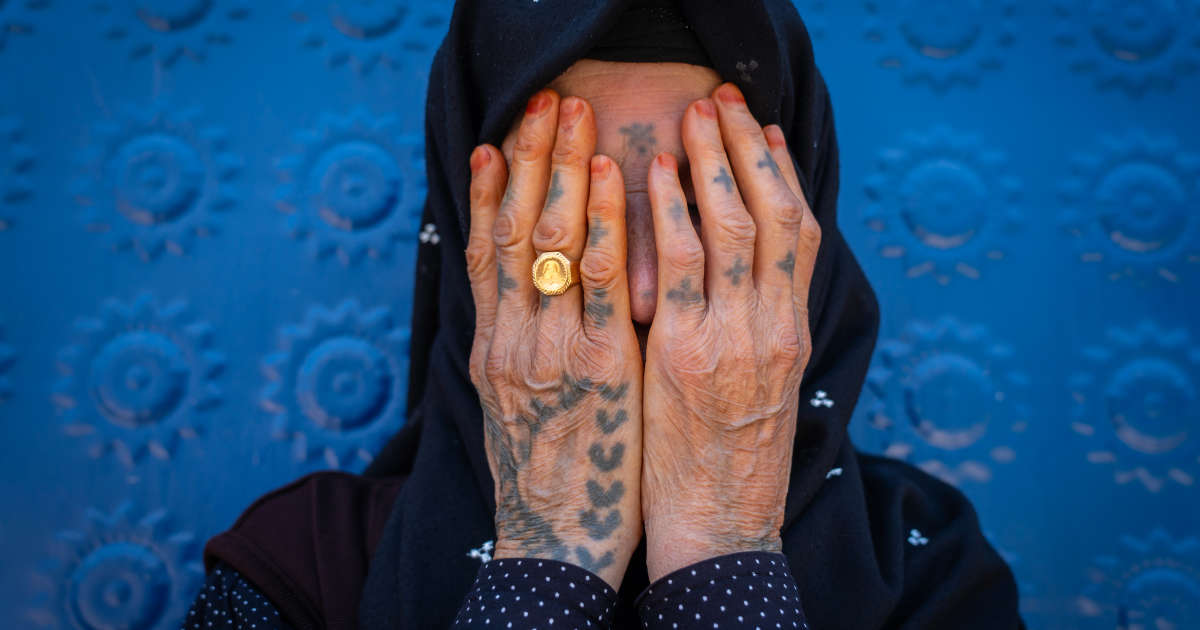In southeastern Turkey, a 24-year-old Kurd is now one of the last guardians of “deq”, an ancient art of Kurdish tattooing, taking on a form of spirituality. By perpetuating this ancestral tradition, it wishes to preserve the threatened culture of an ethnic minority marginalized by successive powers, says “Al-Jazeera”.
Fatê Temel was 20 years old when, for the first time, she dipped the tip of a surgical needle in a mixture of lampblack and breast milk.
It was in the family home, in Derik, a village in the province of Mardin, in the south-east of Turkey, and, facing a mirror hanging on the wall, she pricked the skin of her chin several times.
We were in 2018, it was the very first deq that she realized. THE deq, it is the traditional Kurdish tattoo. Today, Fatê Temel is 24 years old and she has tattooed hundreds of clients with these typical patterns and symbols of deq.
Since November 2021, she has been working in the small studio she opened in the Sur district, in the old city of Diyarbakir, a historic center of Kurdish culture. In Turkey, she is one of the last guardians of this ancient art of tattooing.
“Each tattoo has its own meaning, explains the young woman. For the Kurds, there was a symbolism and associations for each of these symbols and motifs, and all are so many links with a past that is disappearing. For me, the deq is one of the facets of our culture, which is in danger. It is my duty to preserve this tradition.”
A spiritual dimension
THE deq has long enjoyed great popularity with Kurds, but also with Turkmens, Arabs and Doms (Roma from the Middle East), all of whom enjoyed good neighborly relations in eastern Turkey.
Berber women in North Africa practice a very similar type of tattoo. Today, in Kurdish and Arab villages in the eastern part of Turkey, you can still see older women, and sometimes men, wearing deq.
When she was little, Fatê Temel rubbed shoulders with elders in the village whose skin was covered with tattoos. But it wasn’t until a few years ago that she really started to take an interest in it, she says: “I started spending all my time with these tattooed women, finding out what the symbols meant, learning how the deq.”
The very first one she made, on her chin, represents a sun. It symbolizes “the quest for wisdom”, she specifies. “I wrote it on my face so that every time I pass in front of a mirror, this path of life is reminded of me.”
THE deq is a “form of spirituality” and is at the antipodes of modern tattooing, explains the Kurdish anthropologist Ahmet Yavuklu, author of a book on the subject. “His designs are often inspired by creatures and shapes found in nature – the sun, the moon, the stars, the wheat. All are accompanied by a strong symbolism.
If nowadays we get tattooed to adorn our body, to inscribe a belief or the

